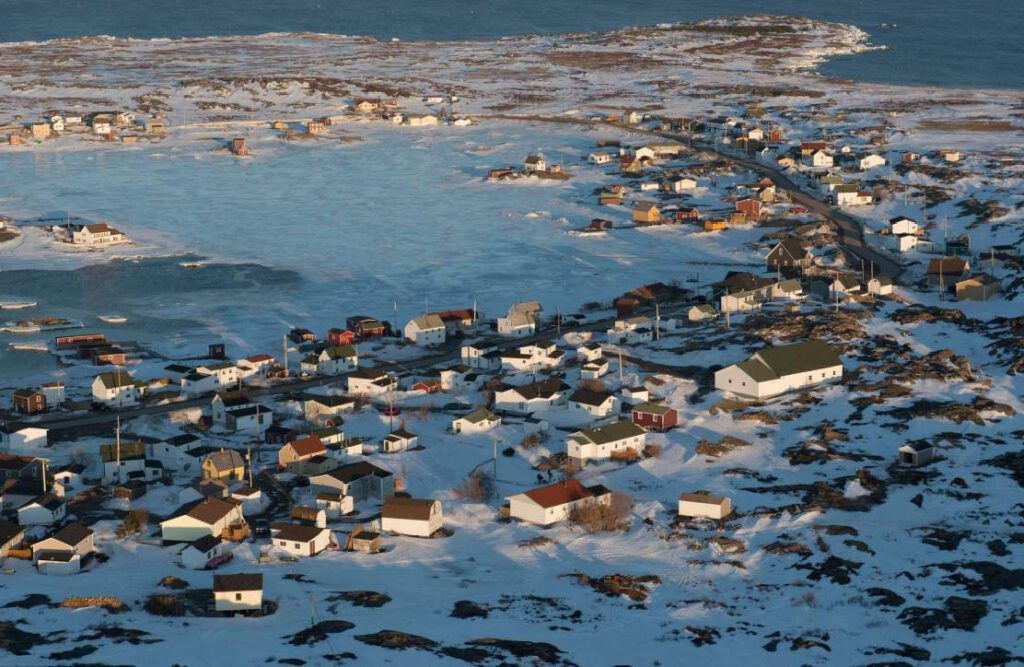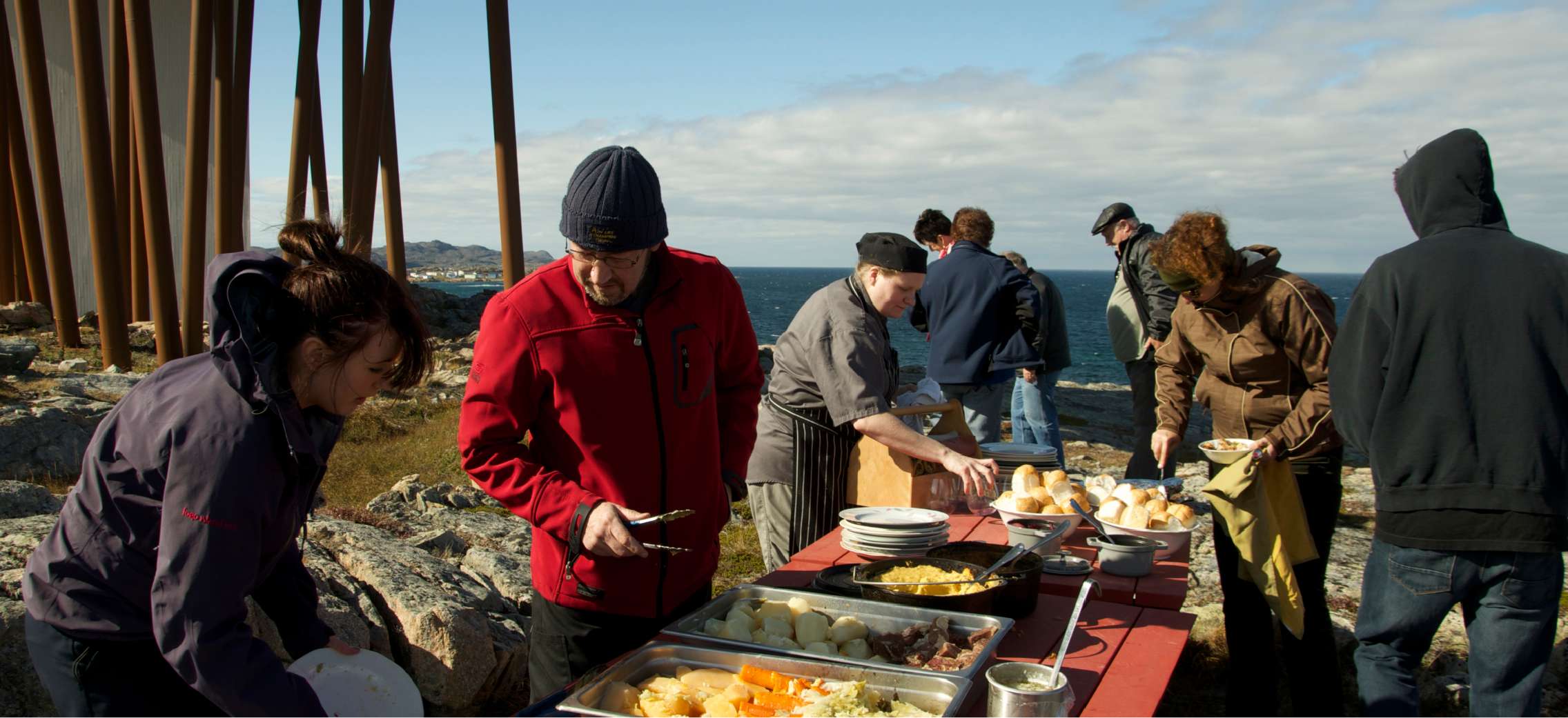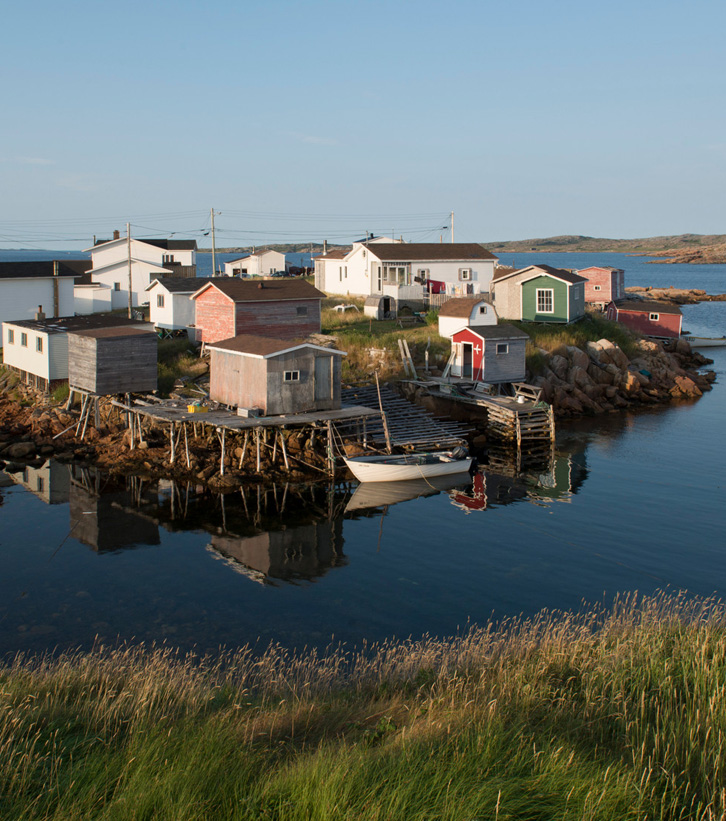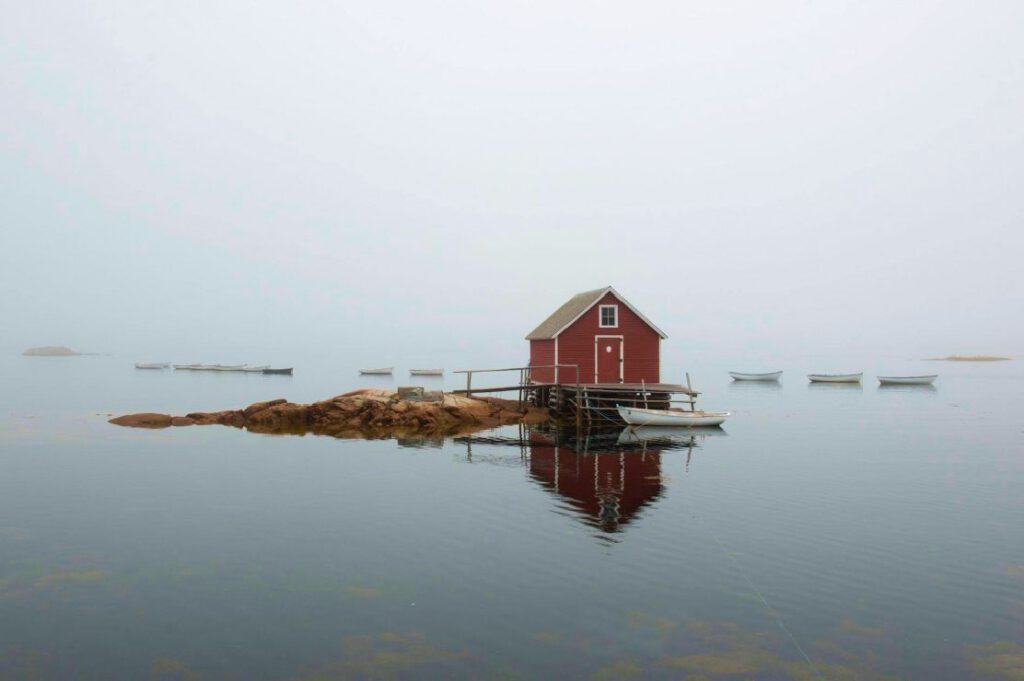An Outport Community
Fogo Island is an outport community: a small, remote coastal settlement unique to the province of Newfoundland and Labrador. Fogo Islanders are people of the sea who have made their living by fishing the frigid and often unforgiving waters of the North Atlantic. A non-capital-accumulating society until the latter decades of the 20th century, Fogo Islanders sustained themselves for generations by fishing as families and relying on an unrelenting sense of resourcefulness fed by a profound attachment to place.

This history of relative isolation and self-sufficiency has shaped Fogo Islanders and the Fogo Island of today and continues to inform the island’s economy and culture.
On Fogo Island, we respectfully acknowledge the land on which we gather and work as the ancestral homelands of the Beothuk, whose culture has been lost forever as a result of colonization. We also acknowledge the province of Newfoundland & Labrador as the ancestral homelands of many diverse populations of Indigenous peoples, including Mi’kmaq, Innu, and Inuit.
We commit to using our platforms to encourage a reverence for Indigenous peoples and their knowledge, and to strive for truth and healing as we move forward together on a journey towards peace and collective prosperity.
History of Settlement

Fogo Island Today

“I’d be a Newfoundlander, outport born, outport bred, of outport strength and tenderness of heart, of outport sincerity, had I my birth to choose.”
—Mr. Coaker, 1909
They came for the cod and they stayed for the cod, and the fishery is still the main cornerstone of our Island’s economy. Through the Fogo Island Co-operative Society, a direct result of the participatory filmmaking project now known as The Fogo Process, our fishery remains community-owned. It has expanded since the 1960s collapse of the cod fishery to include species such as crab, shrimp, and turbot, and our fishers have adapted to the new technologies and equipment.
Today, Fogo Island is a contemporary outport community that boasts the best of rural living alongside opportunities and amenities some wouldn’t expect to find on a remote island. Depending on the season, residents find solitude and recreation along hundreds of kilometres of coastal hiking trails, snowshoe or skidoo across frozen ponds and barrens, swim in crystal clear ponds, and stargaze from their oceanside homes. They can also avail of high-speed internet, delicious cuisine at local restaurants, and glean new ideas and experiences from our thriving community of local and visiting artists, scientists, and other practitioners.
Increasingly recognized as a dynamic and evolving entrepreneurial community, Fogo Island is often referred to as a ‘gateway for seeing and believing’ in acknowledgement of the powerful ways the island has centered connection to nature and culture as a way to build toward a more equitable economy.
Art, in the form of short films, helped prevent resettlement of Fogo Islanders in the 1960s.
The Fogo Process
The Fogo
Process
National Film Board filmmaker Colin Low and community worker Fred Earle worked from the vision of Donald Snowden, head of Memorial University’s Extension Service, to produce 27 short films on Fogo Island. Each film catalogued daily life, challenges, celebrations, and ultimately sparked a dialogue between Fogo Island’s distinct communities, which had no previous history of collaboration.
These films catalyzed much positive social change by helping Fogo Islanders see their similarities and work together to forge a plan for the future.
The Fogo Process films can be viewed on the National Film Board’s website.
